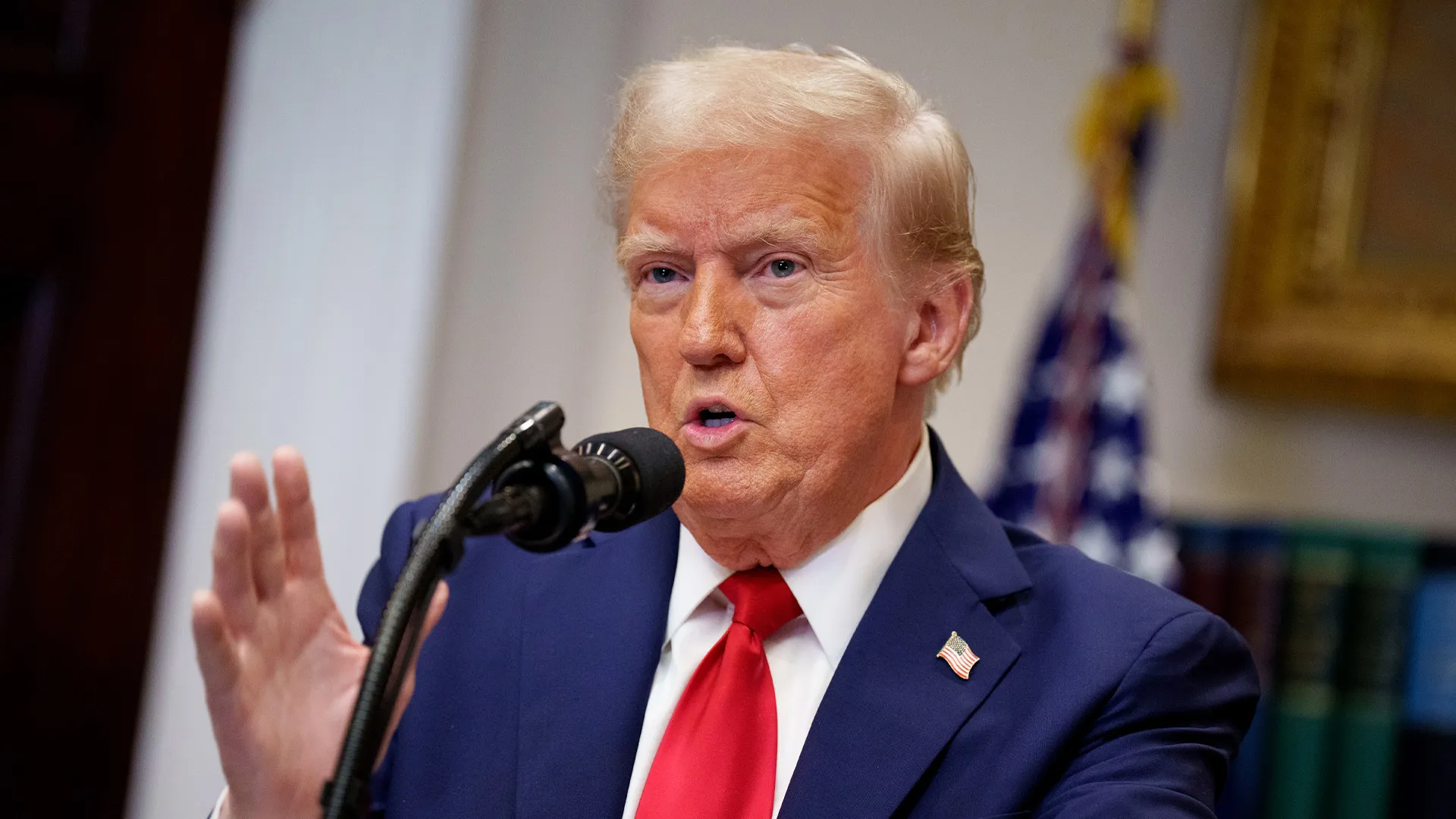U.S. President Donald Trump announced plans to cut all U.S. funding to South Africa and launch an investigation into the country’s policies, claiming human rights violations against white citizens under a new land expropriation law.
Trump posted on Truth Social on Sunday, stating, “South Africa is confiscating land, and treating certain classes of people VERY BADLY.” He alleged a “massive human rights violation” was occurring but did not provide specific details or evidence.
“The United States won’t stand for it, we will act,” Trump wrote. “Also, I will be cutting off all future funding to South Africa until a full investigation of this situation has been completed!”
South Africa’s government responded Monday, saying the Trump administration should seek a better understanding of the law, which aims to address disparities stemming from the apartheid era. President Cyril Ramaphosa stated that “the South African government has not confiscated any land.”
The law, which was signed last month, allows the government to acquire land in the public interest. While some critics argue it could enable the seizure of land from white landowners, the government maintains that it applies to underutilized land and is not race-based.
Elon Musk, a South African-born businessman and Trump ally, has previously accused Ramaphosa’s government of being anti-white, claiming in 2023 that it was permitting a “genocide” against white farmers. Experts say while some white farmers have been targeted, violent crime is widespread across South Africa.
Speaking to reporters Sunday, Trump reiterated his concerns, stating, “They’re taking away land, they’re confiscating land and actually they’re doing things that are perhaps far worse than that.”
Trump did not specify which policies or groups were affected, though his remarks appeared to reference the Expropriation Act, which allows for the redistribution of land deemed to be in the public interest. The law has faced opposition from certain groups in South Africa, while the government insists property rights remain protected.
Ramaphosa’s office emphasized Monday that the law is “not a confiscation instrument, but a constitutionally mandated legal process that ensures public access to land in an equitable and just manner.”
South African Foreign Minister Ronald Lamola urged the U.S. to use the planned investigation to gain a deeper understanding of South Africa’s constitutional democracy and land policies.
South Africa receives significant U.S. funding, primarily through the President’s Emergency Plan for AIDS Relief (PEPFAR), which provides approximately $400 million annually for HIV/AIDS programs. Trump’s previous foreign aid cuts have already placed this funding under threat.
Ramaphosa’s office noted that beyond PEPFAR, “no other significant funding is provided by the United States in South Africa.” However, South Africa remains the largest U.S. trading partner in Africa, according to the U.S. International Trade Commission.
A civil society group representing South Africa’s Afrikaans-speaking white minority, which opposes the new law, expressed concern that Trump’s proposed measures could harm the broader population. The group urged Trump to focus any punitive actions on senior government officials.
Trump has previously criticized South Africa’s government. In 2018, during his presidency, he claimed on social media that land was being seized from white farmers and that there was “large-scale killing of farmers.” His remarks were widely condemned as misleading.
South Africa records an average of 70 homicides per day, according to official statistics, with the vast majority of victims being Black.

